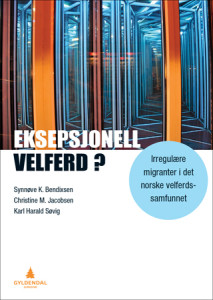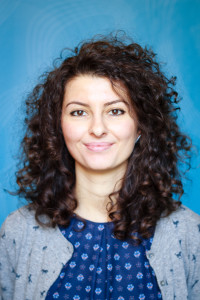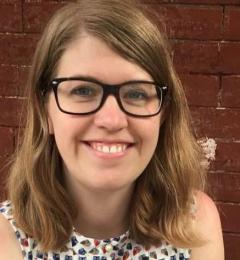Expoloring Diversity Seminar Seriens Workshop
“Transnational(ism)” in IMER-research – Networks, boundaries and mobilisation.
In recent years there has been a general increase in empirical research and theoretical engagement with transnationalism and transnational networks. In regard to the field of international migration and ethnic relations, transnationalism has been hotly debated and a central concern for research. Some approaches have focussed on the more manifest, organizational aspects of relations between sending and receiving countries, such as studies of remittances, migration patterns etc. Others have focussed on phenomenological dimensions; transnational social imaginaries, the stretching of lifeworlds in time and in space. Another division is between research following a more traditional Diaspora-approach, exploring the networks and transactions between “mother”- and recipient countries, and research focussing on migrants’ “double consciousness” as a more persistent dimension in the migrant situation. Both approaches include the meaning and the politics of borders and boundaries, but in different ways. Whereas the first approach tends to centre nation and ethnicity as imperative identity-dimensions in transnational mobilisation, the second approach opens other venues for research on transnational imagination and action. This second approach is perhaps more clearly envisioned in Paul Gilroys work on the Black Atlantic. Gilroy’s transnationalism is one that looks beyond ethnicity and nation as identity-construction dimensions, and focuses on the potential transnational solidarity stemming from being reduced to the other within the nation-state framework. If the first, and traditional, transnationalism approach focuses on the positive aspects of national and ethnic identities, the second approach departs from the negative aspects of the very same identities. These different approaches can again be seen to lead to different research focuses and also to different forms of political mobilisation.
This workshop brings together scholars who work in the intersection between transnationalism research and IMER-research. The purpose is to critically discuss what is meant by the terms “transnational” and “transnationalism”, and to provide some theoretical, methodological and empirical guidelines to research. How do we distinguish between “transnational” and “postnational”, how is the conceptualisation of transnational(-ism) linked to debates in globalisation theory, and how do we incorporate material, political and cultural aspects in research on transnationalism and migration?
IMER-Bergen has at present three research projects in the field of transnationalism research. Two of these focus on transnational mobilisation among young adults of ethnic minority background, the third focuses on different forms of transnational relations and mobilities, their spatial logics and the politics of space/place.
WORKSHOP program
“Transnational(ism)” in IMER-research – Networks, boundaries and mobilisation –
| Tid : | Mandag 17 Desember 2007, 10.00-17.00 |
| Sted : | UiB, Lauritz Meltzers hus, 9 etasje, Seminarrom. |
| 10.00 | Mette Andersson, UiB |
| ” Begrep og forskningsfokus” | |
| 10.30 | Thomas Olesen, University of Aarhus |
| “The Porous Public” | |
| 11.00 | Spørsmål og diskusjon |
| 11.30 | Pause |
| 11.45 | Garbi Schmidt, Danish National Institute of Social Research |
| “Transnational or Universal? Muslim Identity Forming Across National Boundaries” | |
| 12.15 | Spørsmål og diskusjon |
| 12.45 | Lunsj |
| 13.45 | Øivind Fuglerud, UiO |
| “Transnational practises and diasporic identification: Lessons from the Tamil case” | |
| 14.15 | Spørsmål og diskusjon |
| 14.45 | Pause |
| 15.00 | Elisabeth Eide, UiO |
| “Caricatures turning transnational – and landing in national contexts” | |
| 15.30 | Spørsmål og diskusjon |
| 16.00 | Generell diskusjon (slutt 17.00) |
Exploring Diversity SEMINAR SERIES
WORKSHOP
“Transnational(ism)” in IMER-research – Networks, boundaries and mobilisation –
In recent years there has been a general increase in empirical research and theoretical engagement with transnationalism and transnational networks. In regard to the field of international migration and ethnic relations, transnationalism has been hotly debated and a central concern for research. Some approaches have focussed on the more manifest, organizational aspects of relations between sending and receiving countries, such as studies of remittances, migration patterns etc. Others have focussed on phenomenological dimensions; transnational social imaginaries, the stretching of lifeworlds in time and in space. Another division is between research following a more traditional Diaspora-approach, exploring the networks and transactions between “mother”- and recipient countries, and research focussing on migrants’ “double consciousness” as a more persistent dimension in the migrant situation. Both approaches include the meaning and the politics of borders and boundaries, but in different ways. Whereas the first approach tends to centre nation and ethnicity as imperative identity-dimensions in transnational mobilisation, the second approach opens other venues for research on transnational imagination and action. This second approach is perhaps more clearly envisioned in Paul Gilroys work on the Black Atlantic. Gilroy’s transnationalism is one that looks beyond ethnicity and nation as identity-construction dimensions, and focuses on the potential transnational solidarity stemming from being reduced to the other within the nation-state framework. If the first, and traditional, transnationalism approach focuses on the positive aspects of national and ethnic identities, the second approach departs from the negative aspects of the very same identities. These different approaches can again be seen to lead to different research focuses and also to different forms of political mobilisation.
This workshop brings together scholars who work in the intersection between transnationalism research and IMER-research. The purpose is to critically discuss what is meant by the terms “transnational” and “transnationalism”, and to provide some theoretical, methodological and empirical guidelines to research. How do we distinguish between “transnational” and “postnational”, how is the conceptualisation of transnational(-ism) linked to debates in globalisation theory, and how do we incorporate material, political and cultural aspects in research on transnationalism and migration?
IMER-Bergen has at present three research projects in the field of transnationalism research. Two of these focus on transnational mobilisation among young adults of ethnic minority background, the third focuses on different forms of transnational relations and mobilities, their spatial logics and the politics of space/place.
Exploring Diversity SEMINAR SERIES
WORKSHOP program
“Transnational(ism)” in IMER-research – Networks, boundaries and mobilisation –
| Tid : | Mandag 17 Desember 2007, 10.00-17.00 |
| Sted : | UiB, Lauritz Meltzers hus, 9 etasje, Seminarrom. |
| 10.00 | Mette Andersson, UiB |
| ” Begrep og forskningsfokus” | |
| 10.30 | Thomas Olesen, University of Aarhus |
| “The Porous Public” | |
| 11.00 | Spørsmål og diskusjon |
| 11.30 | Pause |
| 11.45 | Garbi Schmidt, Danish National Institute of Social Research |
| “Transnational or Universal? Muslim Identity Forming Across National Boundaries” | |
| 12.15 | Spørsmål og diskusjon |
| 12.45 | Lunsj |
| 13.45 | Øivind Fuglerud, UiO |
| “Transnational practises and diasporic identification: Lessons from the Tamil case” | |
| 14.15 | Spørsmål og diskusjon |
| 14.45 | Pause |
| 15.00 | Elisabeth Eide, UiO |
| “Caricatures turning transnational – and landing in national contexts” | |
| 15.30 | Spørsmål og diskusjon |
| 16.00 | Generell diskusjon (slutt 17.00) |
The workshop is organized by Mette Andersson, Associate Professor, Dept. of Sociology , UiB and Knut Hidle, Research Director, Agderforskning
Exploring Diversity SEMINAR SERIES
WORKSHOP
“The Crystallisation of National Identities in Contemporary Europe”
Open IMER/UiB Workshop
This workshop will deal with a trend in many European states which may be referred to with labels such as the ‘crystallisation’ of national identities or neo-nationalism.
The workshop will examine questions like: is there a particular encompassment of globalisation by the European nation-states, generating neo-nationalism or the crystallisation of national identities? Are neo-nationalism and crystallisation inherent results emanating out of emerging European state-forms influenced by globalisation? Is the historical European national diversity generating something specific European which manifests itself in these contemporary phenomena? Or are there, at the level of generation, a restructuration of political universes and modes of citizenship where neo-nationalism and/or crystallisation of national identities are concomitants? If so, which are the key structurating forces? What (new) (world) order would such neo-nationalism and/or crystallisation imply? To whom would it give more power and legitimacy?
Workshop programme :
Wednesday September 17. :
13.15 – 16.30
1. Yngve Lithman: Welcome and Introduction
2. Bruce Kapferer: Globalization and the Nation State.
3. Mette Andersson: The social imaginary of first generation Europeans.
Thursday September 18. :
09.15 – 12.15
1. Andre Gingrich: “National Identity Inc.”: Uncertainties, politics of emotions, and the fading of European visions.
2. Sigalit Ben-Zion: The problem of the crystallization of national identity in Europe in the post-multiculturalism era.
3. Yngve Lithman: Nationalism, Chrystallization: observations from Scandinavia.
13.15 -17.00
1. Christian Joppke: Changes in the conceptual of citizenship in contemporary Europe: Liberalism and the nation.
2. Elisabeth Ivarsflaten: The anti-racism norm in Western European immigration politics: Why we need to consider it and how to measure it.
3.Hakan Sicakkan: Tracing the de-crystallization of European national identities: humanitarian sovereignty sharing, alternative public spaces and invented belongings.
WORKSHOP
Migration in Nordic societies: Recent perspectives
The workshop is organised as a collaboration between IMER Bergen and the Department of Sociology, UiB. It is open for all interested researchers and students.
Program:
09.00: Welcome by Lise Widding Isaksen (Dept. of Sociology, UiB).
09.15: Helle Stenum (Danish Institute for International Studies, Copenhagen): “Bane and Boon, Gains and pains; Dos and Don’ts. Moral economy and flexible citizens in au pair migration”.
09.45: Coffee break.
10.00: Lise Widding Isaksen (Dept. of Sociology, UiB): “Domestic Workers and Political Agency”.
10.30: Mariya Bikova (Dept. of Sociology, UiB): “Au pair Migration Norway – Philippines”.
11.00: Discussion. Discussant: Christine M. Jacobsen (IMER Bergen and Dept. of Social Anthropology, UiB).
12.00 – 13.00: Lunch break.
13.00: Anna Gavanas (Institute for Future Studies, Stockholm): “Migration, in/formalization and the expanding domestic service sector in Sweden”.
13.30: Vera Galindabaeva (European University, St. Petersburg): “The Effects of Rural-Urban Migration on Transformation of Child Care Arrangemenst in Buryat Rural Families in Post-Soviet Russia”.
14.00: Coffee break.
14.15: Synnøve Bendixsen (IMER Bergen and Uni Rokkan Centre): Ethiopian Irregular Migrants’ demonstration in Oslo Cathedral.
14.45 -15.30: Discussion. Discussant: Lise Widding Isaksen (Dept. of Sociology, UiB).
Friday 7 October, 09.00-15.30.
Faculty of Law, Seminar room 1, Magnus Lagabøtesplass 1.
WORKSHOP POSTER
IMER Abroad: PROVIR Seminar – Precarious migrants and access to welfare: Between policy, law and practice
This workshop will discuss the legal and experienced dilemmas found in the encounter between migrants living in a legally precarious situation and the welfare state in which they reside. Participants will present ongoing empirically based research on migrants’ access to welfare in policy, law and practice in various European countries. They will also discuss the particular position of youth and children in vulnerable situations. The program is available here.
BSRS 2014 Governance to meet Global Development Challenges
Welcome to BSRS2014!
The theme for BSRS2014 is Governance to meet Global Development Challenges. The event will take place from June 23rd to July 4th 2014 at the University of Bergen. Please find information about the courses, application form and other activities at the menu to your right side.
One of the courses is and IMER/SKOK PhD course.
Read more at:
http://www.uib.no/rs/bsrs/programme/bsrs-2014-governance-to-meet-global-development-challenges
Redigert av Christine Jacobsen, Synnøve Bendixsen, Karl Harald Søvig
 Irregulære immigranter har på noen områder full tilgang til velferdsytelser, men på mange områder er tilgangen svært begrenset enten i form av rettsregler eller andre barrierer. Denne antologien undersøker forholdet mellom rettslig rammeverk, institusjonell praksis og hvordan irregulære migranter selv erfarer sin situasjon.
Irregulære immigranter har på noen områder full tilgang til velferdsytelser, men på mange områder er tilgangen svært begrenset enten i form av rettsregler eller andre barrierer. Denne antologien undersøker forholdet mellom rettslig rammeverk, institusjonell praksis og hvordan irregulære migranter selv erfarer sin situasjon. Med en unik kombinasjon av juridisk og antropologisk blikk, går boken regelverket nærmere i sømmene, drøfter gatebyråkraters utfordringer og hverdagslivet til irregulære migranter og deres barn.
Hvilke regelverk får konsekvenser for irregulære migranters levevilkår? Hvordan blir dette regelverket forstått og etterfulgt av gatebyråkrater? Og hvordan blir hverdagslivet til irregulære migranter og deres barn påvirket av regelverket og dets fortolkning?
Denne boken er aktuell for velferdsprofesjoner som møter irregulære migranter som en del av sin yrkesutøvelse. Både leger, sykepleiere, helsesekretærer, lærere, helsesøstre, skolerådgivere, sosialarbeidere, sosionomer og barnevernspedagoger vil ha god nytte av Eksepsjonell velferd? Irregulære migranter i det norske velferdssamfunnet. Boken retter seg også mot frivillige organisasjoner som jobber med ulike aspekter ved migranters situasjon i Norge og andre som er engasjert i temaet.
If a LGBTI person can “stay in the closet” in the country of origin, should she then be denied asylum as a refugee? This is currently a thorny issue for several European countries, when facing asylum seekers who apply for protection on the basis of their sexual orientation or gender identity. For this IMER seminar, Andrea Grønningsæter from the faculty of law at UiB will discuss how this is currently practiced in Norway.
Research has shown that that LGBTI people (lesbian, gay, bisexual, trans and intersex people) often face specific legal and procedural challenges when applying for refugee status. In a number of jurisdictions, including Norway, LGBTI asylum seekers have been denied refugee status with reference to the fact that they can abstain from behavior that may result in a risk of persecution. A gay person can live as a gay within the confines of the home, for example, but not on the streets – and may thus not be granted protection. It is then concluded that the requirement in refugee law of establishing a ‘well-founded fear’ of persecution is not fulfilled, because concealment will mean that the asylum seeker is not revealed to potential persecutors.
In 2012 the Norwegian Supreme Court considered the right to refugee status based on sexual orientation (Rt. 2012 s. 494). In the court’s decision it was stated that a gay person may not be required to hide their sexual orientation in the country of origin to avoid persecution. In cases where it is concluded that the asylum seeker will choose to conceal their sexual orientation, the court established a step-by-step approach for assessing whether the asylum seeker is entitled to refugee status.
For her PhD project, Grønningsæter looks at how the approach that was established by the Supreme Court in 2012 for assessing asylum cases based on sexual orientation or gender identity is interpreted by the courts and the immigration authorities. She explores how the courts and immigration authorities establish the asylum seeker’s reason for concealment, as well as how concepts such as ‘being open’ or ‘discreet’ about sexual orientation or gender identity is understood.
A light lunch will be served. Welcome!
Andrea Grønningsæter is a PhD candidate at the Faculty of Law, Bergen University.
In current debates about multicultural societies, ideas about active citizenship sometimes play a part. The increase of ethnic, cultural and religious diversity in Scandinavia has led to integration and naturalization policies that focus on social cohesion and stress the need for a shared set of values, identities and commitment to active participation in society. What kind of engagement is seen as good and legitimate, and what kinds of engagement are seen as illegitimate? For this IMER lunch seminar, Noor Jdid from PRIO and SKOK will present insights from her PhD project, which explores active citizenship in Norway and Denmark, among both minority and majority populations. She draws on ethnographic fieldwork in five different neighbourhoods in Oslo (Tøyen, Holmlia, Røa) and Copenhagen (Østerbro, Sydhavn), consisting of 69 life history interviews and 13 focus group discussions with residents of these neighbourhoods, as well as expert interviews and participatory observation. The analysis shows that the intersection of place, gender, class and ethnicity often shapes citizens’ understandings of their own civic engagement. When determining what ‘counts’ as a legitimate and valuable contribution to society, the research participants drew gendered and racialized discursive boundaries between the public and the private spheres.
 Noor Jdid is a Doctoral Researcher at the Peace Research Institute Oslo (PRIO) and Center for Women’s and Gender Research (SKOK). Her PhD is part of the larger SAMKUL-project “Active Citizenship in Religiously and Culturally Diverse Societies”.
Noor Jdid is a Doctoral Researcher at the Peace Research Institute Oslo (PRIO) and Center for Women’s and Gender Research (SKOK). Her PhD is part of the larger SAMKUL-project “Active Citizenship in Religiously and Culturally Diverse Societies”.

